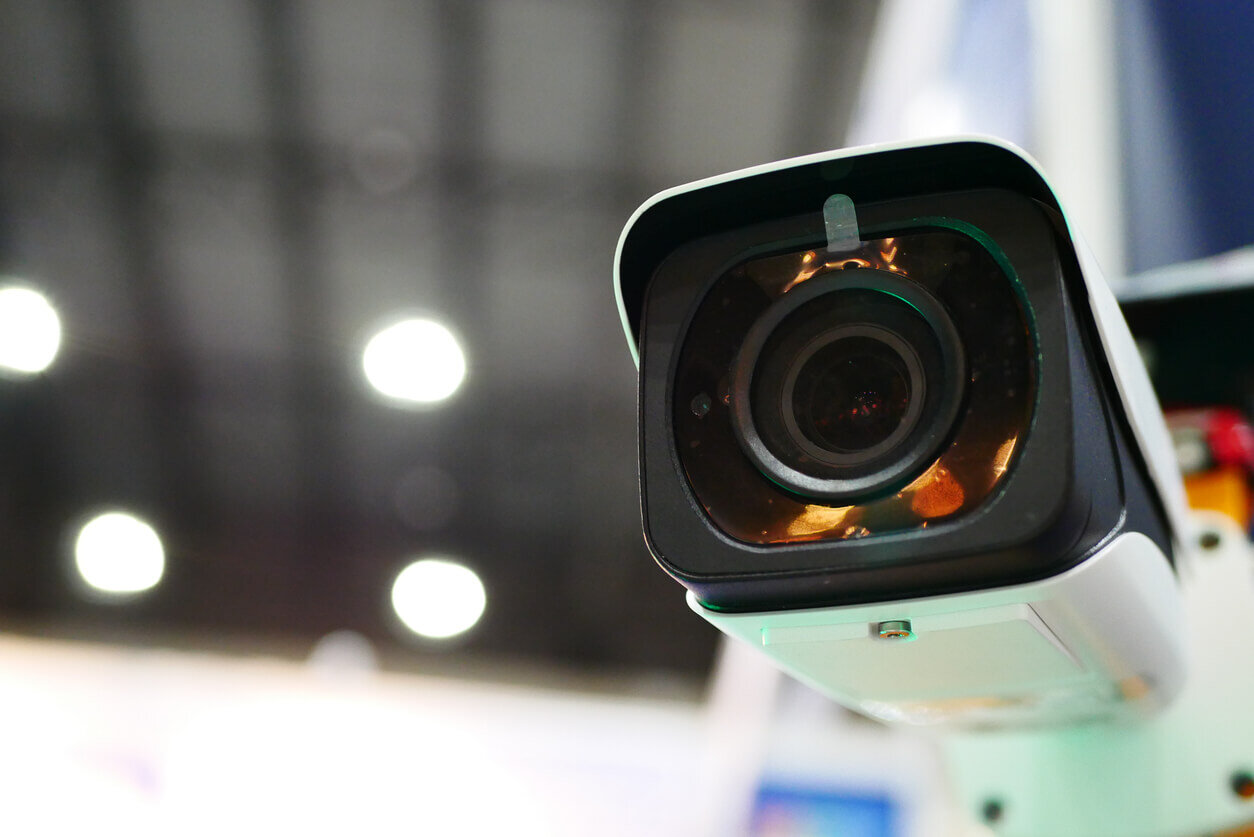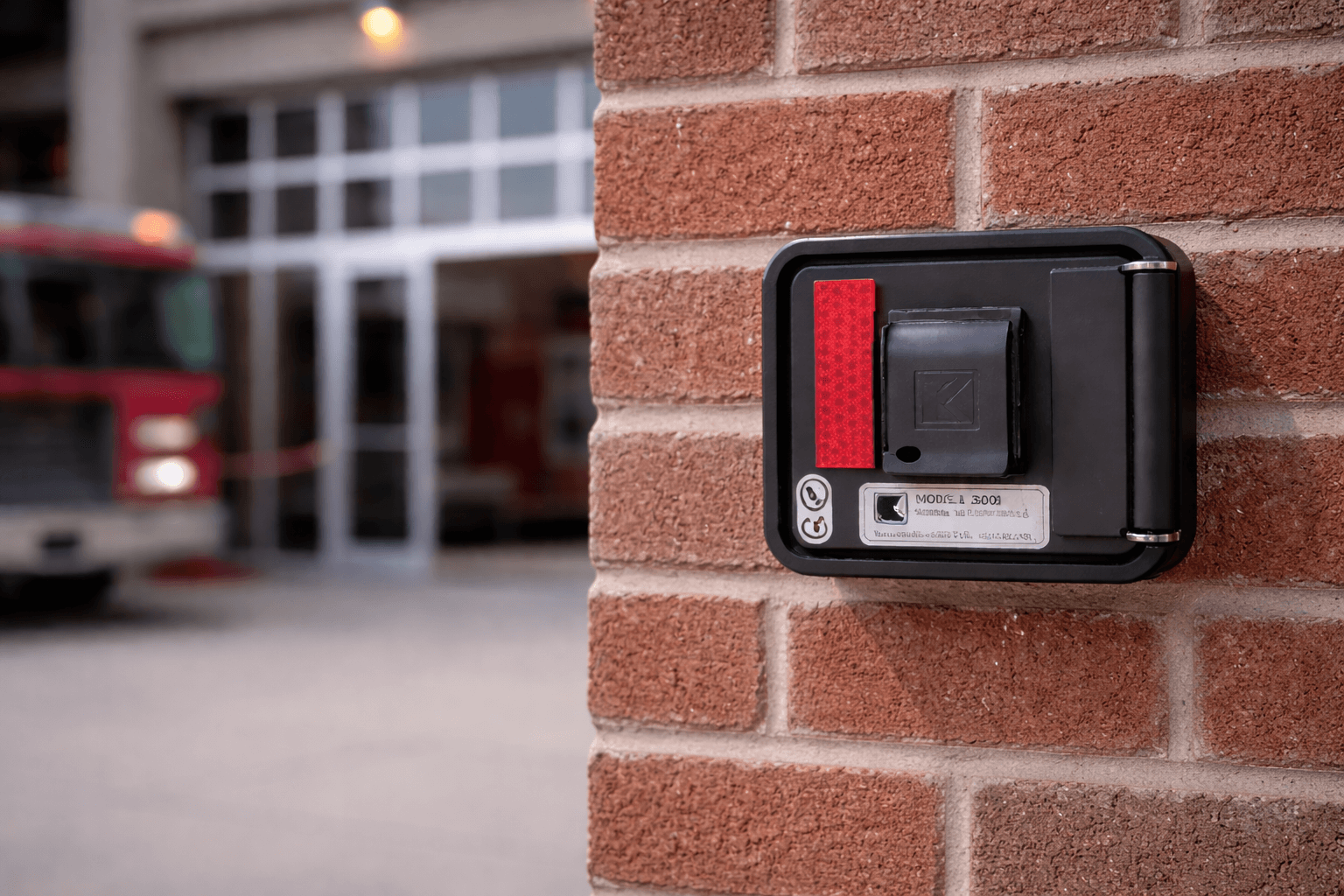How is AI Changing Commercial Security?
AI helps businesses develop faster and more effective commercial security systems by identifying patterns and predicting when threats are likely to occur.Did you know instances of theft cost the retail industry almost $100 billion in 2022 alone? To combat these numbers and other security issues, businesses are seeking security systems that offer real-time threat detection, proactive risk management, and adaptive defenses—all of which can be provided by AI-driven security systems.
AI isn’t just valuable for retail security, however. In finance, AI algorithms analyze patterns to detect fraudulent activities, healthcare institutions use AI for patient information security, and manufacturers rely on it to safeguard their facilities. As AI-driven security continues to evolve, it promises to provide a safer future for businesses of all types.
How can machine learning impact the security industry? Let’s find out.
How is AI-Driven Security Changing Things?
Thanks to AI technology, like intrusion detection systems, behavior analytics platforms, and weapons detection software, physical intelligent security solutions are becoming more proactive.
These smart surveillance technologies use machine learning algorithms and advanced analytics to bolster security measures. Biometric authentication, threat detection, and video surveillance technology help create a more comprehensive security system.
AI-driven security can analyze vast amounts of data in real-time, recognize complex patterns, and make predictive assessments, making systems more efficient, accurate, and responsive. Businesses can then unlock advantages that significantly enhance their security infrastructure.
4 Benefits of AI-Driven Security Systems
There are numerous benefits when security risks are analyzed efficiently. Let’s look at the top four benefits of smart surveillance technologies.
1. Enhanced Surveillance Capabilities
Thanks, in part, to real-time data analysis capabilities, AI-driven security systems can automatically analyze video feeds while alerting security personnel to potential threats faster than ever before.
AI-powered security systems can also track individuals in restricted areas, flag people who don’t belong, and even predict where security breaches or risks may occur in the future.
2. Improved Accuracy and Speed
Without technology, in-depth analysis of security data takes time and effort. Security professionals must review data from security logs, analyze videos, and look at historical data before determining if something is a threat.
Along with the significant amount of time this process takes, manually tackling these tasks introduces the opportunity for human error. AI-driven security systems allow these tasks to be taken care of immediately, which introduces a high level of accuracy. As a result, the security team’s workload is reduced. Instead of spending all their time investigating, they can better use their effort—responding to threats and preventing security breaches.
3. Reduction of False Alarms
Since false alarms consume valuable time and resources, they pose significant challenges to security teams. However, advancements in AI have revolutionized management alarm response practices. For example, facial recognition software, enhanced sensors, and thermal imaging can fine-tune surveillance and make alarms more accurate.
With AI-driven security, false alarms are nearly eliminated. Security teams can then focus efforts on true security concerns, thus reducing costs and improving productivity.
4. Better Risk Predictions and Mitigation
One aspect of AI-driven security systems is their ability to continuously learn and adapt. For example, AI algorithms can analyze behavior patterns to identify threats early, such as people loitering in sensitive areas. Security systems can also alert personnel to unattended bags or suspicious items to allow for real-time identification of potential threats.
Once data has been analyzed, commercial security systems use that information to make future predictions. Companies can then implement protocols that allow for a swift response to emerging situations.
4 Challenges With Smart Commercial Security Systems
Despite their many benefits, AI-driven commercial security systems have their challenges. Here are the top four.
1. Malware, Ransomware, and Data Attacks
As security systems become more advanced, so do criminals. Cyber attacks, such as malware, ransomware, and data breaches, can hinder security systems and compromise sensitive data.
2. Ethical and Legal Implications
Algorithms can inherit biases from the data they are trained on, which could lead to ethical dilemmas around discrimination. Also, since AI relies so heavily on data, there are concerns related to privacy, especially regarding highly sensitive or confidential information.
3. Human Error
Although including AI-enhanced commercial security removes most instances of human error, they still occur. Human-led misconfiguration, data deletion, and the improper handling of security settings can all lead to issues with an AI-driven security system.
4. Complexity
AI-powered security systems are complex. They require sensors, cameras, and robust data sets to create a cohesive system. Some businesses find their base infrastructure is incompatible with the more advanced security systems and may require significant upgrades to computer systems, servers, and other technology.
One simple step that can protect a business from these challenges is to keep AI systems up to date and ensure the latest security standards and regulations have been implemented.
Future Trends in Commercial Security Systems
In the future, we can expect to see enhanced integration with IoT devices, which will help ensure access control systems, sensors, and cameras collaborate seamlessly. Cloud-based platforms are also poised to make systems more scalable and provide remote management capabilities and flexibility.
Likewise, self-learning algorithms and autonomous devices will also have a future impact on commercial security systems. Predictive maintenance, adaptive security, and even automated threat response may soon be at our fingertips.
How Can AI-Driven Security Affect You?
Businesses that embrace AI and machine learning security features unlock a world of possibilities. Threats are detected more effectively, response times improve, and false alarms become a thing of the past. Security teams can then focus on the real threats.
If your goal is to enhance your company’s security, establishing or upgrading your security system is worth exploring. At Impact Fire, we have numerous options to keep your company secure. Contact Impact Fire for your company’s physical security needs.







